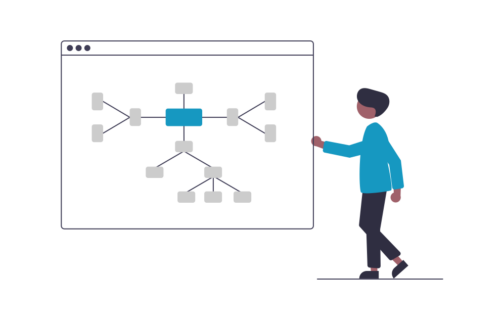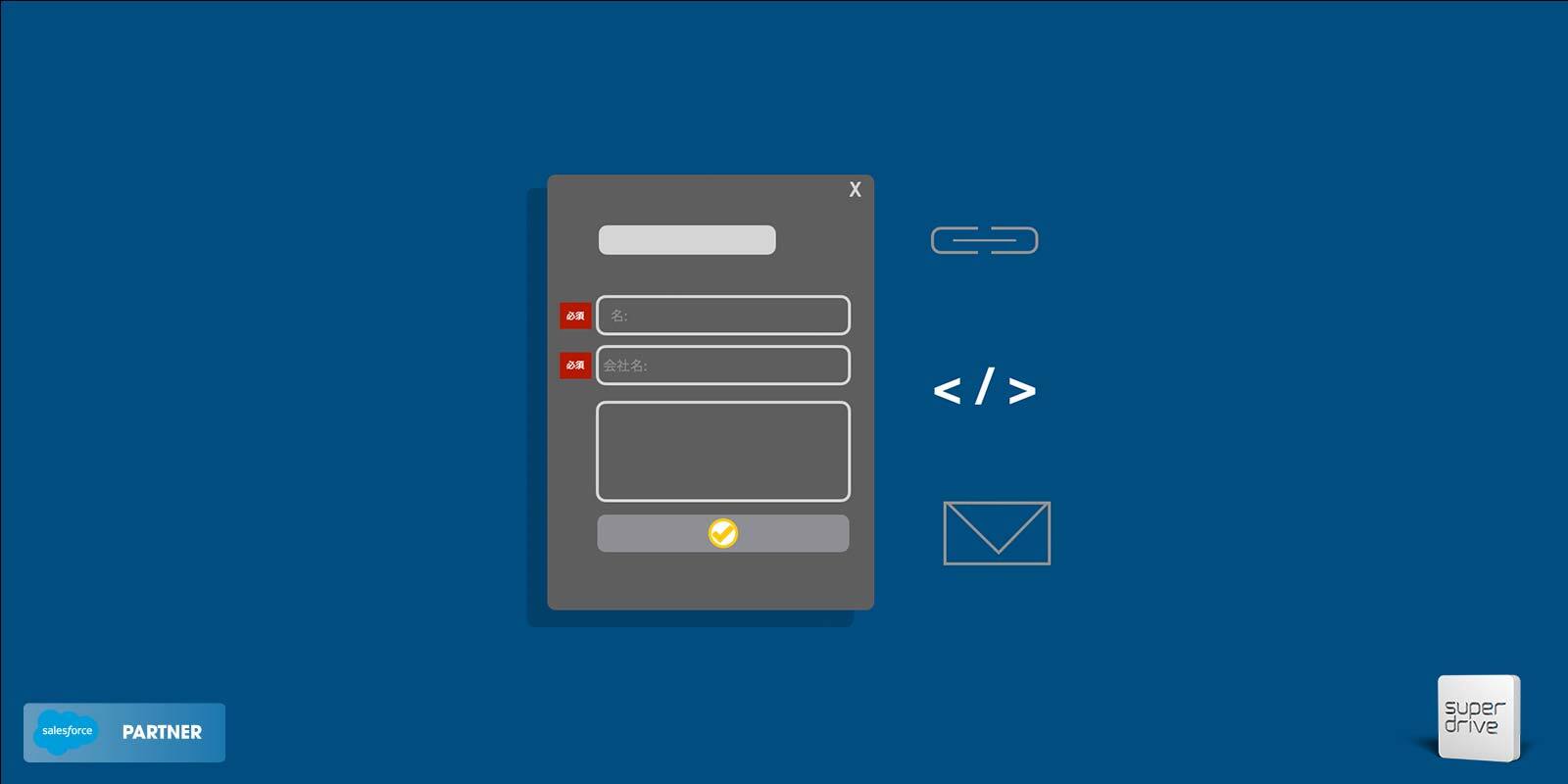Account Engagement (Pardot) and Marketing Cloud are the two marketing automation offerings in the Salesforce ecosystem. Both platforms equip clients with the ability to personalize, streamline and automate marketing efforts, resulting in more revenue, with less effort.
So if both marketing automation platforms do the same thing, what is the difference? And which one should you go with?
While Pardot and Marketing Cloud both have the same end goal in mind, the two systems are drastically different in how they operate. Today we will break down the differences between the two MA tools and help you understand which one is right for your business.
What does Account Engagement (Pardot) do?
Account Engagement (Pardot)’s single biggest advantage over Marketing Cloud, is its seamless integration with Salesforce CRM and your website. It acts as an in-between tool that lives between the two.
By directly connecting to the website and Salesforce, Pardot adds an extra layer for Marketing and Sales, in tracking visitor behavior, associating that behavior with leads and customers, and using that behavior to properly nurture and market to the prospects and customers.
If your organization relies on Salesforce CRM as its single source of truth, Pardot may be the right tool to select.
Pardot is good at:
- Tracking digital activities such as page views, file downloads, form fills and email clicks
- Sharing that activity with Sales within Salesforce CRM, to empower sales teams to close more deals
- Using prospect data to automatically segment, score, route and nurture leads using personalized email journeys
What does Marketing Cloud do?
Marketing Cloud’s single biggest advantage over Pardot is its broad range of marketing automation capabilities that go beyond email marketing. It’s an end-to-end marketing solution that enables you to engage with customers across multiple channels, including email, social media, mobile, and web.
In addition to CRM and web, Marketing Cloud can integrate seamlessly with ecommerce systems, mobile apps and more, and therefore replaces Salesforce CRM as the single source of truth for customer data.
If your organization needs a comprehensive marketing automation solution that can handle multiple channels beyond email and web, Marketing Cloud may be the right choice.
Marketing Cloud is good at:
- Building and executing cross-channel campaigns, including email, social media, mobile, and web
- Tracking customer interactions across multiple channels and touchpoints
- Personalizing campaigns based on customer behaviors, preferences, and demographics
- Analyzing campaign performance and optimizing campaigns in real-time based on data insights.
Pardot vs. Marketing Cloud – Which one should you choose?
So, now that you have an overview of the two systems, how do you determine exactly which one to go with?
Today we will provide you with a five step assessment to take into account, as you evaluate which system is right for your organization.
1. Is your market B2B or B2C?
Marketing Cloud is often the go-to tool for Business to Consumer (B2C), while Pardot is designed to work effectively for B2B.
B2C Markets

- Have large databases of customers and Prospects
- Use e-commerce or in-store POS to make sales
- Utilize many touchpoints and channels across the customer journey – social media, advertising etc.
- Rely on customer data platforms, e-Commerce systems etc. for insight into customer information and transactions
Marketing Cloud is good for B2C because it can handle large amounts of customer and prospect data, ties in multiple channels and with a good developer, can be integrated with ecommerce engines, customer data platforms, and more.
B2B Markets
- Have fewer prospects and customers than B2C, but with larger deal sizes
- Rely on a sales team to close deals
- Rely heavily on a CRM as a single source or truth for prospect and customer information
Pardot is better for B2B because it acts as an extension of the Salesforce CRM, out of the box. It is a layer that sits on top of the CRM and is designed to help Sales close more deals, by automating their communications with prospects and customers, for them.
2. Do you leverage Account Based Marketing?
Marketing Cloud is great for conversational marketing, while Pardot is purpose-built to handle Account Based Marketing (ABM)
Conversational marketing
- Is cross-channel, including apps, chatbots, social media and email
- Utilizes a one-to-one approach to build relationships
- Is often best for one-off purchases
Marketing Cloud is better for conversational marketing, due to its ability to heavily personalize the experience for prospects across channels. It can ingest social, advertising, email and shopping cart data and create personalized journeys based on prospect and customer interests. It can even leverage AI to predict what content to serve for the best result.
Account-based Marketing
- Is omni-channel, but also focuses heavily on aligning sales and marketing efforts
- Utilizes a one-to-one and one-to-some approach to build relationships with key accounts
- Is effective for organizations with long sales cycles and high value deals
With features like lead scoring, prospect activity tracking and alerts and lead nurturing, Pardot is designed with the Sales team in mind. Pardot can help sales teams stay top of mind with key accounts in a personalized and automated fashion.
3. Is your Marketing style Reactive or Proactive?
Marketing Cloud is often used for pushing prospects through the funnel quickly, while Pardot is designed for building longer, slower nurturing campaigns.
Reactive approach
- Pushes leads through the funnel quickly
- Urges leads to take action
- Utilizes an omnichannel communication strategy, including SMS, push notifications, email, social media, ads, and mobile marketing
Marketing Cloud’s omni channel capabilities and ability to capture data from various sources, makes it ideal for a personalized, reactive approach.
Proactive approach
- Lead nurturing is used to stay top of mind with leads during long sales cycles
- Scoring, grading, and routing is used to ensure sales reps stay on top of their hottest leads
- Uses emails, landing pages, forms, and social media to engage with leads
Pardot’s lead nurturing and scoring capabilities, combined with its integration with Salesforce CRM, make it an excellent tool for organizations that prioritize a proactive approach to marketing and sales.
4. Is Salesforce CRM your source of truth?
The amount of value your organization places on the data within your Salesforce CRM will largely determine how valuable Pardot vs. Marketing Cloud will be for your business. Marketing Cloud works well for Organizations with a very complex data architecture vs. Pardot is built to rely on Salesforce as the main source of truth.
Complex Architecture
- POS or eCommerce tools
- Customer Data Platforms
- In-App and Mobile Communications
- External Segmentation or analytics tools
Marketing Cloud can bring in and push out large amounts of data from a variety of sources and channels, making it the ideal hub for organizations with a complex structure.
Salesforce CRM as a Single Source of Truth
- Salesforce CRM houses the most up to date relevant customer data
- Salesforce CRM is integrated with other systems, acting as the hub
- Segmentation and reporting is done within Salesforce
If other systems already communicate with Salesforce CRM, which acts as the central hub and source of truth, Pardot may be the better choice, as it simply adds an extra layer to this existing infrastructure.
5. What is your Budget?
Finally, the elephant in the room – price…
There is no question that Marketing Cloud is generally quite a lot more expensive than Pardot, though it depends on the Marketing Cloud features purchased vs. Pardot Plan purchased. Here is an overview:
Marketing Cloud
- Each feature/product (ie email vs. social vs. reporting) comes with its own price tag, which must then be bundled together and purchased as required
- Different tiers/Plans can increase or decrease the price further
- # of emails sent can increase or decrease the price further
- As an example of a Marketing Cloud Bundle, at the time of writing this post, we can estimate that a combination of Marketing Cloud email, mobile, journey builder and advertising studio will cost at least 350,000 yen per month.
Pardot
- There are four tiers/plans, each with a set of features and set price, making for a much simpler pricing model
- # of emails sent will not increase or decrease the price further, but # of mailable contacts in the database, may
- At the time of writing this post, Pardot pricing ranges from 150,000-1,800,000 yen per month, depending on plan.
Conclusion
In conclusion, both Salesforce Marketing Cloud and Account Engagement (Pardot) are powerful marketing automation tools that cater to types of organizations, with different needs and preferences.
Pardot is often used for B2B markets, with longer sales cycles, a sales team and an ABM approach, relying on Salesforce CRM as the single source of truth. It lives in between the CRM and the website and is used to create powerful email journeys and sequences, landing pages and forms. Pardot’s big advantage over Marketing Cloud is its CRM integration, lead scoring/routing and sales enablement capabilities.
Marketing Cloud is the preference for B2C organizations that have shorter sales cycles and rely on a variety of channels, and external tools and systems, to track, manage and sell to their customers. Marketing Cloud’s big advantage over Pardot is its ability to fit within and integrate within a complex data architecture and deliver omnichannel communications to customers, through email, mobile, in-app messages and more.
To get in touch with our team of experts, please drop us a line in the form.
Written by Alon Margovskiy, Head of Marketing Automation, Superdrive.
Superdrive is an official Salesforce Partner with Salesforce Certified Marketing Cloud Specialists and Consultants.




